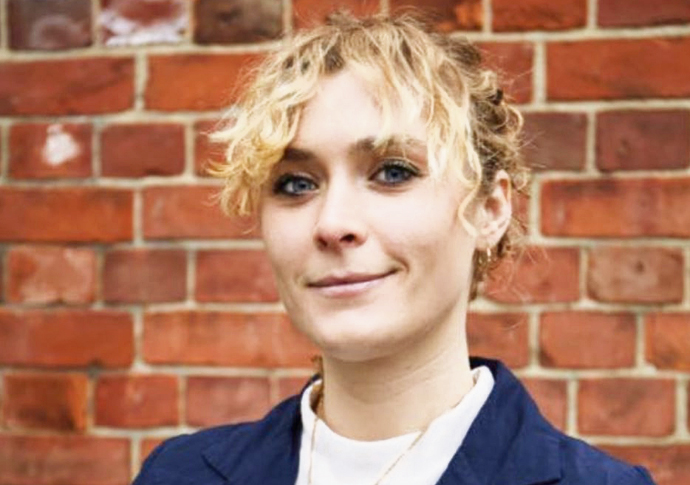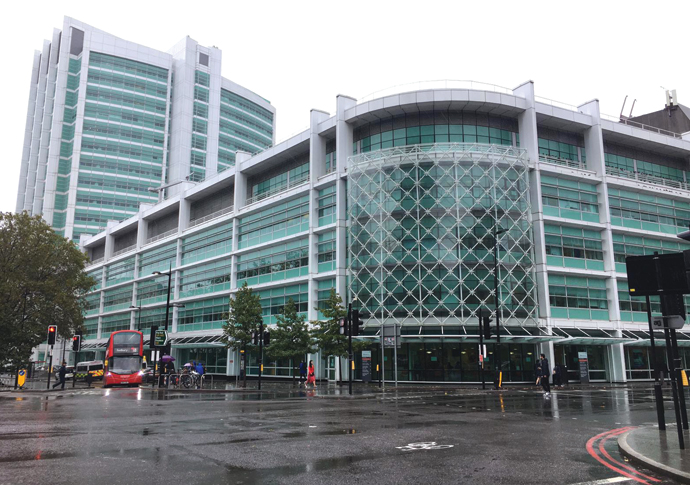‘We need to know Gaia’s death won’t be repeated’
Councillor calls for answers as unexpected death of 25-year-old remains unexplained
Friday, 25th July 2025 — By Cllr Dr Hannah McHugh

Gaia Young died in 2021
IN July 2021, 25-year-old Gaia Young died unexpectedly after being admitted to University College London Hospital (UCLH).
Her death, caused by swelling of the brain, remains unexplained. That is a tragedy. But injustice lies in what followed.
For four years, Gaia’s mother, Lady Dorit Young, has searched for answers – battling silence, resistance, and institutional defensiveness against a backdrop of delay, ambiguity, and disempowerment. She has been made to do the state’s work – chasing records, commissioning opinions, and asking repeatedly for basic transparency.
It should never fall to bereaved parents to investigate their own child’s death.
As an Islington councillor, I’ve supported Lady Young in this painful journey. It has revealed something of concern to us all: when things go wrong in our healthcare system, the path to truth is too often long, difficult, and unjust. Tragedies become injustices.
The inquest into Gaia’s death concluded in 2022. Gaia died from a dangerous swelling of the brain – but the cause was “uncertain.” Inquests should establish who died, how, and in what circumstances. In Gaia’s case, the how remains unanswered.
The Inner North London Coroner ordered UCLH to provide witnesses “best able to assist.” Yet, no neurologist (a brain specialist) or metabolic expert (who investigates chemical imbalances) attended. Despite Gaia’s mother identifying metabolic encephalopathy as a likely diagnosis – a condition where toxins or chemical disturbances affect the brain – this was never explored. Medical staff capable of answering these questions were available at UCLH, but not called. Instead, UCLH selected a generalist emergency doctor to give evidence.
This was not just a failure of judgment. It was a failure of process.

Cllr Hannah McHugh
It is deeply concerning that NHS Trusts are routinely asked to select their own medical witnesses for inquests. That places the institution under scrutiny in the position of gatekeeper. It invites a conflict of interest. It places families – already exhausted – at a structural disadvantage.
We should be concerned about this serious flaw in the way deaths in public care are handled. The failure to provide the truth has compounds harm. That phrase – compounded harm – comes from the Parliamentary and Health Service Ombudsman; it is what happens when grieving families must also battle for answers.
When families are given partial information.
When apologies are vague, and learning is slow.
Gaia’s case, sadly, exemplifies this.
To its credit, UCLH has since acknowledged some of these failings. Independent expert reviews have been commissioned; the CEO and Chief Medical Director have met with me and Lady Young and apologised for missed opportunities in Gaia’s care. These steps, though important, cannot undo the harm caused by the system’s early failures. Nor have they yet delivered the answers needed.
A fresh inquest would be more than a symbolic gesture. New medical evidence, including an independent neuroradiological report, raises serious questions that must be examined through proper legal process. Only this way can the learning needed to prevent future deaths happen. This is justice for Gaia, and justice for our community.
Gaia was a daughter, a friend, and a bright presence in many lives. She lived here in Islington – a borough that I believe should serve women like her: young, determined, full of promise.
Gaia’s story speaks to how we care for people in crisis – and how we care for those left behind. The inquest is the final duty of the state to deliver justice in death, when justice in care may have already fallen short.
Gaia deserves answers. Her mother deserves peace. We, the Islington public, deserve to know this cannot happen again.
• Hannah McHugh is a Labour councillor
Hospital’s treatment apology

UCLH’s most recent statement:
“We met with Lady Young and apologised that Gaia’s care fell below the high standards we strive to provide. We have acknowledged that we did not communicate with Lady Young as well as we should have done at the time of Gaia’s admission.
“We understand the distress this has caused Lady Young and sympathise greatly that the cause of her beloved daughter’s death is still unknown.
“We are committed to learning from external opinion and scrutiny and in 2022, we agreed to commission a range of independent experts to explore further the circumstances surrounding Gaia’s death.
“We agreed with Lady Young the scope of the reviews and the experts who will undertake them. We have already developed new clinical guidance and training following our internal investigation and we await the outcomes of all the external reviews to understand if further lessons can be learned and acted upon.”